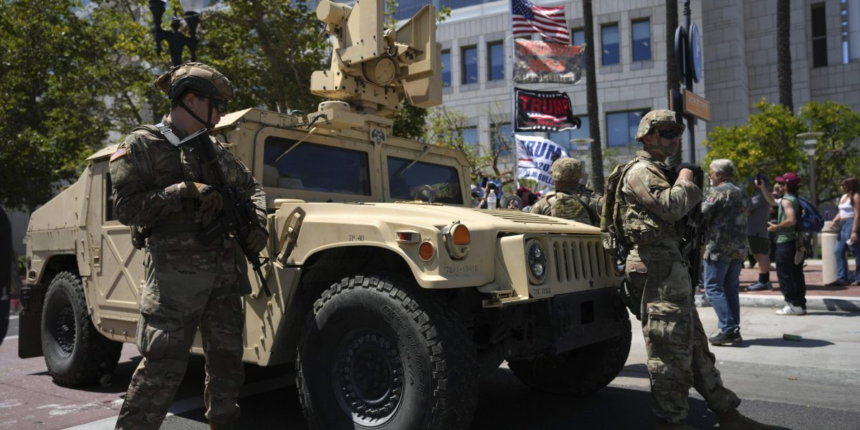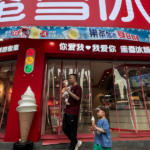U.S. District Judge Charles Breyer put off issuing any additional rulings and instead asked for briefings from both sides by noon Monday on whether the Posse Comitatus Act, which prohibits troops from conducting civilian law enforcement on U.S. soil, is being violated in Los Angeles.
Vice President JD Vance, a Marine veteran, traveled to Los Angeles on Friday and met with troops, including U.S. Marines who have been deployed to protect federal buildings.
According to Vance, the court determined Trump’s determination to send in federal troops “was legitimate” and he will do it again if necessary.
“The president has a very simple proposal to everybody in every city, every community, every town whether big or small, if you enforce your own laws and if you protect federal law enforcement, we’re not going to send in the National Guard because it’s unnecessary,” Vance told journalists after touring a federal complex in Los Angeles.
California has sought a preliminary injunction giving Newsom back control of the troops in Los Angeles, where protests have calmed down in recent days.
Trump, a Republican, argued that the troops have been necessary to restore order. Newsom, a Democrat, said their presence on the streets of a U.S. city inflamed tensions, usurped local authority and wasted resources.
Trump federalized members of the California National Guard under an authority known as Title 10.
Title 10 allows the president to call the National Guard into federal service when the country “is invaded,” when “there is a rebellion or danger of a rebellion against the authority of the Government,” or when the president is otherwise unable “to execute the laws of the United States.”
“The protests in Los Angeles fall far short of ‘rebellion,’ ” wrote Breyer, a Watergate prosecutor who was appointed by President Bill Clinton and is the brother of retired Supreme Court Justice Stephen Breyer.
The Trump administration argued that courts can’t second-guess the president’s decisions. The appellate panel ruled otherwise, saying presidents don’t have unfettered power to seize control of a state’s guard, but the panel said that by citing violent acts by protesters in this case, the Trump administration had presented enough evidence to show it had a defensible rationale for federalizing the troops.
For now, the California National Guard will stay in federal hands as the lawsuit proceeds. It is the first deployment by a president of a state National Guard without the governor’s permission since troops were sent to protect Civil Rights Movement marchers in 1965.
Trump celebrated the appellate ruling in a social media post, calling it a “BIG WIN” and hinting at more potential deployments.
Newsom, for his part, has also warned that California won’t be the last state to see troops in the streets if Trump gets his way.









